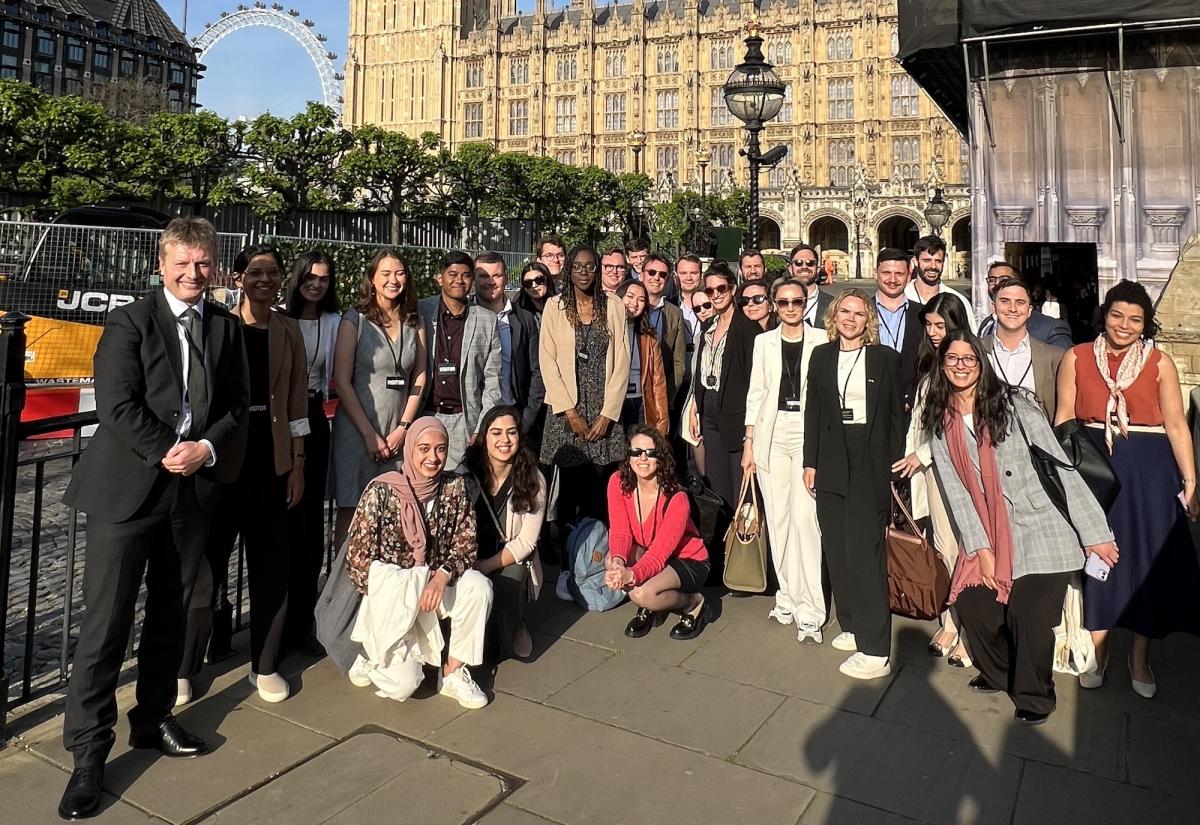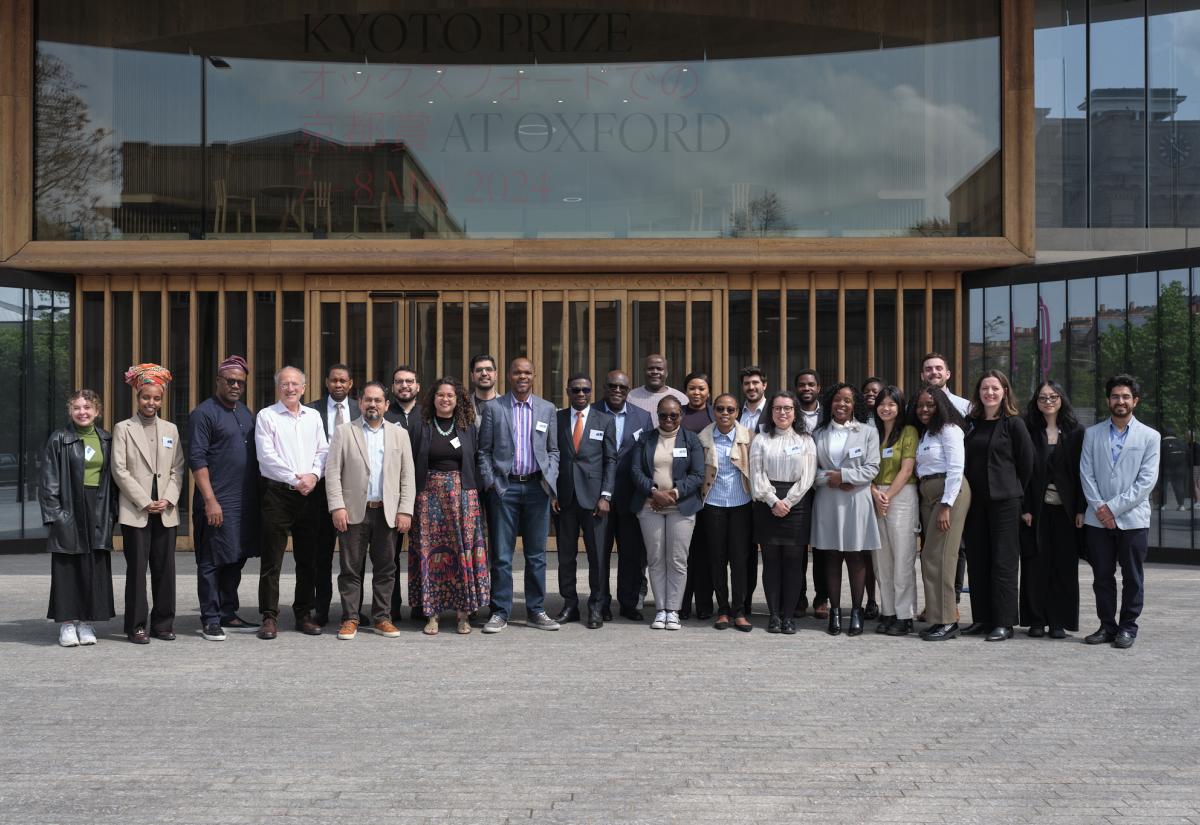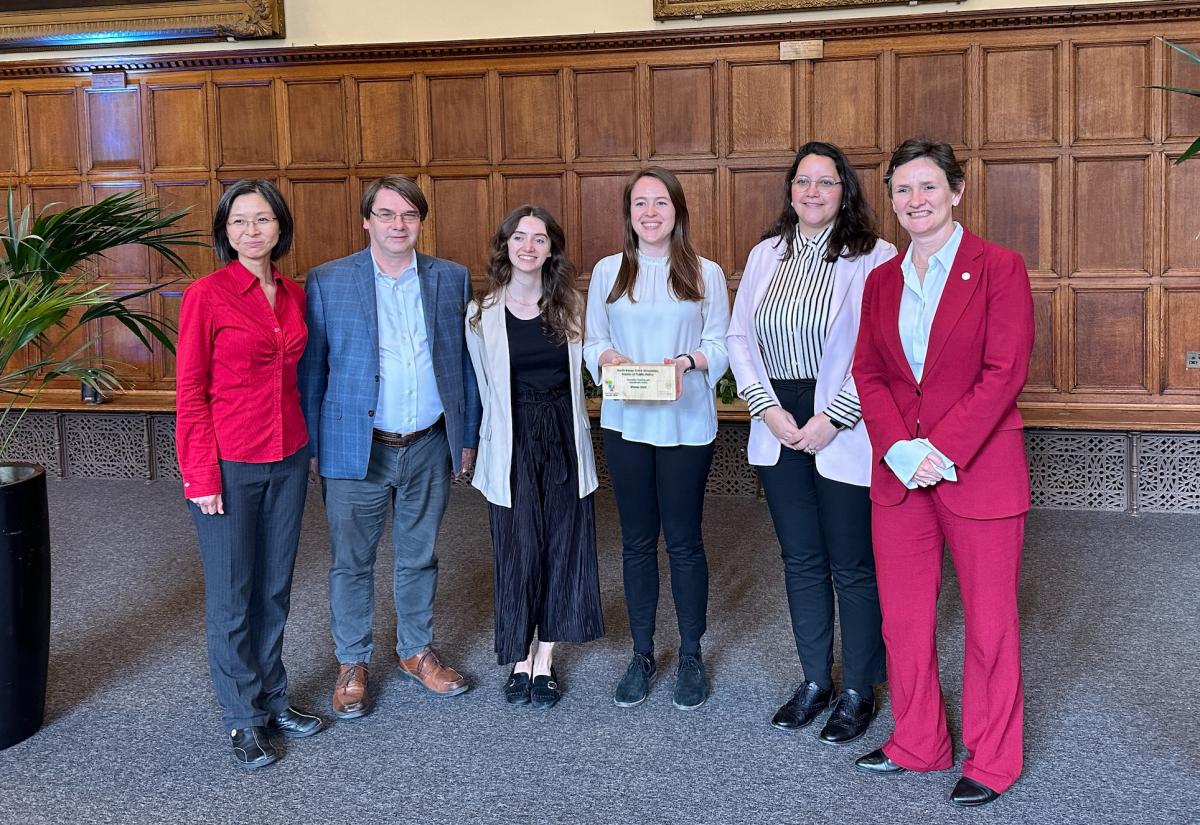
Image: World Economic Forum / Benedikt von Loebell
There was a strong representation of Blavatnik School of Government faculty at the World Economic Forum’s Annual Meeting of Global Future Councils, which took place on 11-12 November. More than 700 members of the Network of Global Future Councils met in Dubai to discuss the opportunities for global transformation presented by the Fourth Industrial Revolution.
The Blavatnik School group included Professors Ngaire Woods, Anandi Mani and Dapo Akande, and Drs Tom Hale, Emily Jones and Maya Tudor.
The Blavatnik School faculty led and contributed to a wide variety of sessions at the Annual Meeting. Tom Hale, Associate Professor in Public Policy and Senior Researcher on the Global Economic Governance Programme (GEG) at the Blavatnik School, spoke on innovative governance strategies for achieving the Sustainable Development Goals. He also presented the Forum’s Global Governance “Transformation Map”, which he curates. Emily Jones, Associate Professor in Public Policy and Director of GEG, participated in discussions on trade and investment, emphasising the need to address social and economic inequalities to overcome citizens’ frustration with economic governance.
Anandi Mani, Professor of Behavioural Economics and Public Policy, participated in the Global Future Council on Behavioural Science along with Eldar Shafir, who is a Visiting Professor at the Blavatnik School from Princeton University. They gave insights on how behavioural science could address challenges relating to poverty, gender, and trust in government.
A further contribution came from Dapo Akande, Professor of Public International Law, who was part of the Council on the Future of Human Rights. The Council aimed to outline a framework for preventing the development and use of machine learning applications that would lead to discriminatory societal outcomes. He also joined discussions on the possibility of a ban on lethal autonomous weapons.
Maya Tudor, Associate Professor of Government and Public Policy, participated in the Global Future Council on Economic Growth and Social Inclusion. She spoke about the need to expand beyond traditional measures of economic growth and to interrogate the automatic link to social inclusion to take narratives of identity – the most immediate means to social inclusion – seriously. She is helping to author the final report of the Council.
Finally, Professor Ngaire Woods, Dean of the Blavatnik School, moderated a discussion entitled ‘Towards a shared narrative about the future,’ considering how areas as diverse as brain scanning, technology governance, and social media are reshaping the world.
The World Economic Forum’s Annual Meeting 2018 in Davos will draw on the ideas put forward in Dubai.



